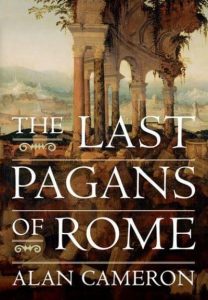An interesting comment by Tacitus, Agricola 21, quoted by Prudence Jones & Nigel Pennick in A History of Pagan Europe:
[Boudicca’s rebellion in 60 CE] nearly succeeded, but after it was put down and the punitive victor, Suetonius Paulinus, discreetly removed to another command, a series of new governors and their financial directors set about a systematic process of Romanization. As Tacitus observed with some acerbity, “Among the conquered it is called culture, when in fact it is part of their slavery.” Did it ever stop being part of our slavery, I wonder? Or have we successfully become Rome’s heirs rather than her slaves? Would contemporary Romans agree?
My first reaction is that as long as the Roman army occupied Britain, the Roman culture adopted by the native rulers was, as Tactus says, actually a badge of their slavery. When the occupying army withdrew, and native culture (or a blended culture) re-emerged, Roman culture was no longer a badge of slavery, but now merely a foreign influence similar, say, to the preeminence in Europe of French culture under Louis XIV. But, perhaps that is also a form of slavery. There are, I think, some obvious connections with the imperialism of the modern global monoculture, and the anger in the Muslim world about the loss of indigenous traditions.
We are all captives of our culture, and co-participate in its creation. So, we are all in some sense slaves of some culture, although perhaps we prefer that it not be a foreign culture. What’s interesting to me is how easily this topic relates back to Nietzsche’s discussion of slave mentality and the superman, where so much of our common culture is all about control of the individual, contrasted with the natural aristocrat who (supposedly) creates his own values.
Leadership
Recent events in a certain community call to mind one of my favorite passages from Thaddeus Golas’ The Lazy Man’s Guide to Enlightenment:
"Every person who allows others to treat him as a spiritual leader has the responsibility to ask himself: Out of all the perceptions available to me in the universe, why am I emphasizing the ignorance of my brothers? What am I doing in a role where this is real? What kind of standards am I conceiving, in which so many people are seen to be suffering, while I am the enlightened one? My experience is that everyone believes he or she is capable of leadership, but very few do it well."
